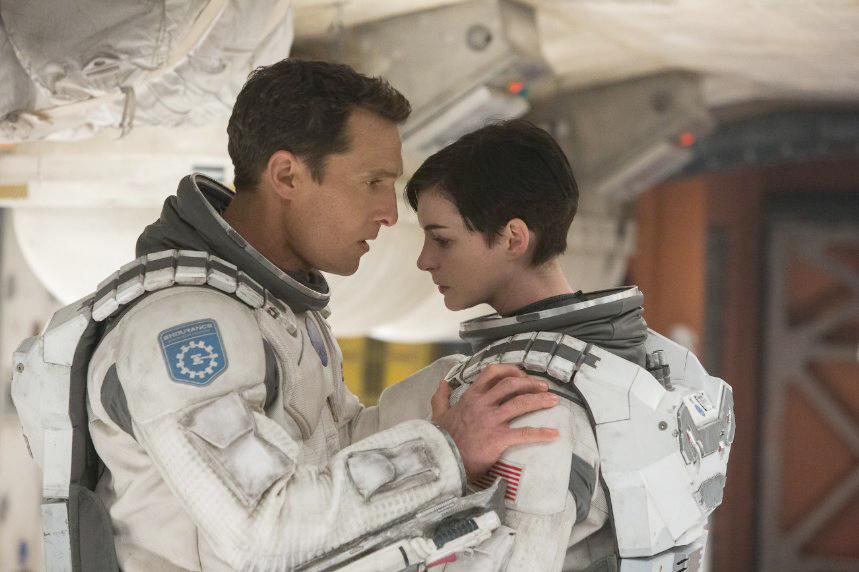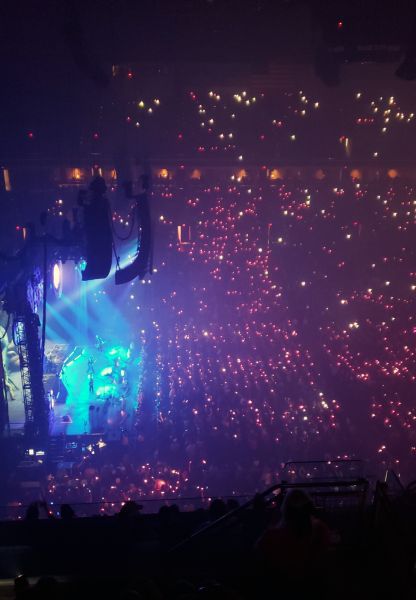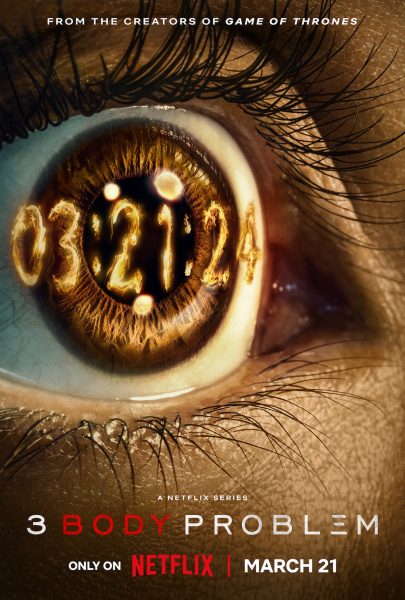An out-of-this-world McConaissance
Sci-fi ‘Interstellar’ completely engrosses
“Interstellar” captures tension between characters and between worlds.
November 14, 2014
Rarely have I left the theater feeling so conflicted and in all the right ways.
“Interstellar” is perhaps one of the most entrancing and visually stunning films to hit theaters within my lifetime, and there is no doubt that Hans Zimmer has outdone himself with an emotionally overwhelming, orchestra-heavy musical composition that consistently compliments each and every scene to the exact minute detail.
To be frank, it was an emotional rollercoaster that only went up. The eargasmic chills and waves of raw emotion bombarded me consistently, and as the scenes exploded with philosophical musings, I felt just as engrossed, vulnerable and completely fearful that I, too, was part of a mission where the fate of humanity rested in my hands.
Before you make a comment regarding the “over-exaggerated” statement of the previous sentence (honestly, it’s a cheesiness that fits quite well with the nature of some spoken lines within this film), I would like to point out that I believe science-fiction, as a genre, unfortunately summons unwarranted logical scrutiny due to its often complex nature and sometimes reality-bending subject.
As a forewarning, there will be some mysticism that will pervade this film, and do-what-your-heart-tells-you emotions will be pitted against the fact-checked, data-driven empirical science with which we are all familiar in our modern day society. If you are someone who really enjoys getting ‘technical’ with your analysis, I will forewarn you that such a mindset may hinder you from enjoying the other aspects of the film. This is especially if you are zoomed in on denying some questionable interpretations related to the science of astrophysics.
“Interstellar” is never about the technical achievements that allow the main characters to go where no man has gone before; it is about the internal conflicts we rarely consider as beings who are too prone to mistakes when dealt with minutes to make pivotal decisions.
Christopher Nolan’s “Interstellar” focuses on Cooper (Matthew McConaughey), a widowed pilot-turned-farmer who lives with his father-in-law Donald (John Lithgow), his son Tom (Timothée Chalamet) and 10-year-old daughter Murphy (Mackenzie Foy). In this distant future, Earth is no longer able to sustain humanity and has regressed mankind to an agrarian society. To make matters worse, new species of crops are decimated by blight and dust storms ravage the land, producing life-threatening issues to everyone. In the midst of all this chaos, Cooper finds himself in contact with NASA and is given an opportunity to pilot a ship alongside Amelia Brand (Anne Hathaway) through a wormhole in search of a new habitable planet.
The cinematography was a completely immersive experience. The space sequences include scientifically accurate silence as well as wide-screen panoramas that depict forbidding landscapes and stretch the imagination to its end. Moreover, Nolan finds that perfect balance in using the score to compliment a scene rather than overpower it. Often, the stretches of silence heighten moments of serious contemplation, often reminding the audience that such an environment is an open invitation to the redoubtable loneliness not often thought about.
Praise be given to Matthew McConaughey who embraces his role wholeheartedly and expresses all aspects of his character in a way that is truly admirable. His performance, though riddled with somewhat corny lines, shows an actor ready to fully embrace the role of a reluctant and grief-stricken father whose façade of an indomitable exterior fractures extensively as the story progresses.
Somewhat similar to the character HAL of “2001: A Space Odyssey,” “Interstellar” also has robot companions for the human characters; these take the form in the minecraft-esque machines whose uncanny senses of humor (stated in percentages nevertheless) produce the most likeable oddities of the bunch. One of the machines, TARS, manages to grab extensive screen time, and its presence never fails to radiate with sarcastic one-liners or astounding action sequences throughout the journey.
The highlight of the film is the concept of relativity and how the astronauts deal with the decisions that revolve around it. See, within the film, a few weeks or months on Earth may translate into only a few minutes elsewhere in space. Hence, time is of the essence; there is a ticking clock governing every aspect of existence.
It is under such unique circumstances that we find these astronauts struggling to objectively maintain their course to save humanity alongside their own agendas which include returning home and reuniting with loved ones.
Knowing that with each argument and setback they face their loved ones are experiencing accelerated aging and related loss of hope, the space travelers struggle with their fear of time to complete an already daunting task.
In total, the movie may not be as profound as we would expect it to be; however, there can be no doubt that the issues and philosophical inquiries it raises are more than enough to keep this 169 minute production in the minds of its viewers way after the film ends.
If you do not have plans to go see “Interstellar” this upcoming weekend, I implore you to highly consider adding a showing to your schedule. If you are able to get yourself to an IMAX showing, do in fact shell out the extra cash; trust me, it is well worth it.
Those familiar with Stanley Kubrick’s “2001: A Space Odyssey” as well as Edwin Abbott Abbott’s “Flatland: A Romance of Many Dimensions” are encouraged to seek out Christopher Nolan’s “Interstellar;” fans of Steven Soderbergh’s “Solaris” or Steven Spielberg’s “Close Encounters of the Third Kind” should also give “Interstellar” a shot.
Film: “Interstellar”
Release Date: Nov. 5, 2014
Rating: ★★★★½



















